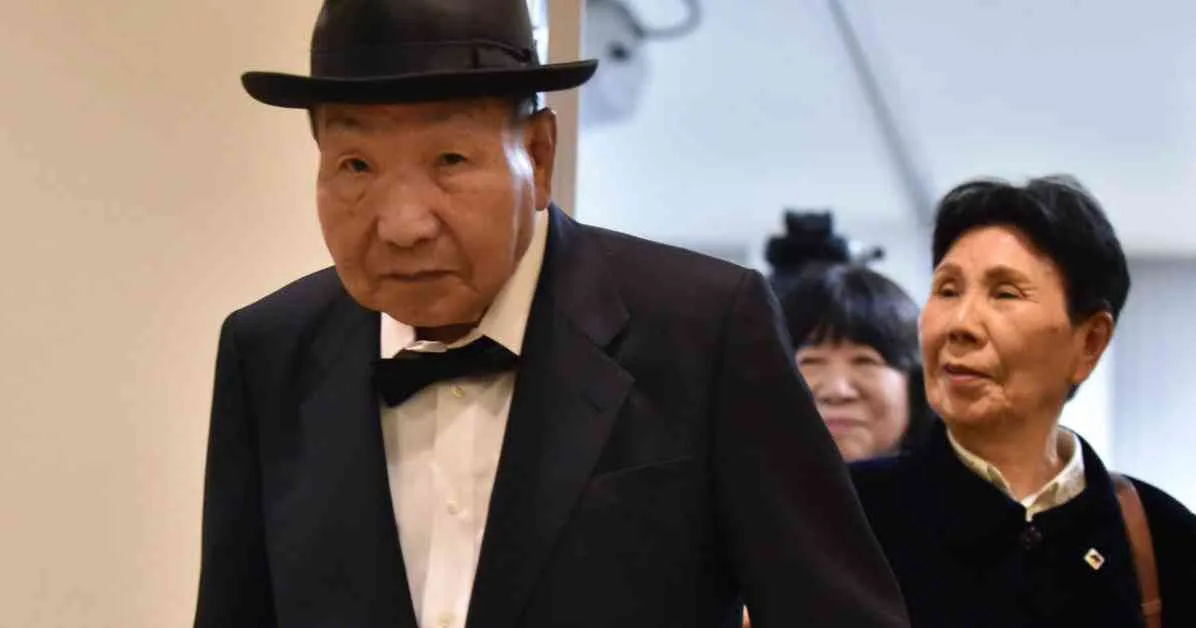**Japanese Court Acquits 88-Year-Old Former Boxer of 1966 Murders**
An 88-year-old former boxer in Japan, Iwao Hakamada, was acquitted in a retrial for a 1966 quadruple murder, overturning a previous decision that had made him the world’s longest-serving death row inmate. The Shizuoka District Court ruled in favor of Hakamada, making him the fifth death-row convict to be found not guilty in a retrial in postwar Japanese criminal justice. This landmark decision has reignited discussions around the death penalty in Japan and raised questions about the country’s criminal justice system.
**The Long Legal Battle**
Hakamada’s journey to exoneration was a lengthy and arduous one. He was convicted of murder in the 1966 killing of a company manager and three family members, as well as setting fire to their home in central Japan. Sentenced to death in 1968, Hakamada spent 48 years behind bars, with more than 45 of those years on death row. His case garnered international attention, with Amnesty International highlighting the injustice he endured for most of his life.
**Fabrication of Evidence**
During the retrial, the court acknowledged multiple fabrications of evidence and concluded that Hakamada was not the culprit. The presiding judge, Koshi Kunii, highlighted the flawed investigation that led to Hakamada’s wrongful conviction. The acquittal brought a sense of relief to Hakamada’s 91-year-old sister, Hideko Hakamada, who had tirelessly fought for her brother’s innocence for over five decades.
**Impact of Wrongful Imprisonment**
Hakamada’s nearly five-decade-long ordeal had a profound impact on his mental health. Supporters noted that the extended period of detention, including solitary confinement, took a toll on Hakamada’s well-being. After his release in 2014 pending retrial, Hakamada struggled to adjust to life outside prison, showcasing the challenges faced by individuals wrongfully incarcerated for extended periods.
**International Support and Recognition**
The global community has rallied behind Hakamada, with Amnesty International and various rights groups advocating for his release and exoneration. His case has shed light on the flaws within Japan’s criminal justice system and the need for reforms to prevent future miscarriages of justice. Hakamada’s story serves as a stark reminder of the importance of upholding justice and protecting the rights of individuals, regardless of their circumstances.
**The Debate on the Death Penalty**
Hakamada’s acquittal has reignited the debate on the death penalty in Japan. As one of the few countries in the Group of Seven that retains capital punishment, Japan faces scrutiny over its approach to executions and criminal justice. The public’s support for capital punishment contrasts with the growing calls for reform and abolition of the death penalty, especially in cases like Hakamada’s where innocence is later proven.
**Calls for Legal Reforms**
Hakamada’s case has underscored the need for legal reforms in Japan to ensure fair trials and access to retrials for individuals wrongfully convicted. Hideko Hakamada’s relentless pursuit of justice for her brother highlights the challenges faced by families of those unjustly imprisoned. Her advocacy for revising criminal laws to facilitate retrials reflects a broader push for systemic changes to prevent future miscarriages of justice.
**Implications for Criminal Justice**
The landmark ruling in Hakamada’s case sets a precedent for addressing wrongful convictions and the use of fabricated evidence in criminal trials. Legal experts have called for revisions to the criminal justice system to prevent similar injustices in the future. The court’s decision to exonerate Hakamada marks a significant step towards rectifying past errors and upholding the principles of justice and fairness in legal proceedings.
**Conclusion**
Iwao Hakamada’s acquittal in the 1966 murder case represents a triumph of justice after decades of wrongful imprisonment. His story serves as a reminder of the importance of due process, fair trials, and the protection of individuals’ rights within the criminal justice system. As Japan grapples with the aftermath of this high-profile case, the focus shifts towards legal reforms and ensuring that similar miscarriages of justice are prevented in the future.






















